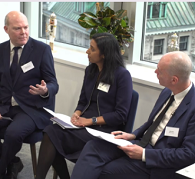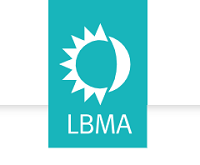How do central banks control the gold price?
The gold price is controlled by central bankers. Here's how...
"GOD, IT WAS SO embarrassing...
"Everyone was asking why they ever let that guy publish the report? Credit Agricole was a laughing stock. Professionals in the gold industry were amazed. It was just ridiculous..."
The professional gold-industry analyst I met for a pint one warm summer's evening in Soho, London earlier this year was certainly amazed. Mentioning the infamous report from Chevreux – a division of Credit Agricole – made him wince.
The Remonetization of Gold by Paul Mylchreest put the reputation of France's largest bank right on the line – the same line spun by the Gold Anti-Trust Action Committee (GATA) since it first accused the Federal Reserve and its counterparts in Europe of illegally rigging the gold market to suppress Gold Prices in 1999.
"Central banks have 10-15,000 tonnes of gold less than their officially reported reserves of 31,000" the Chevreux report announced seven years later. "This gold has been lent to bullion banks and their counterparties and has already been sold for jewelry, etc. Non-gold producers account for most [of the borrowing] and may be unable to cover shorts without causing a spike in the gold price."
In other words, "covert selling (via central bank lending) has artificially depressed the gold price for a decade [and a] strongly rising Gold Price could have severe consequences for US monetary policy and the US Dollar."
The conclusion? "Start hoarding," said Paul Mylchreest...a smart call. Because in finance, being right – even if for the wrong reasons, perhaps – still pays off. His report for Credit Agricole's Chevreux division was published in January last year. Come May 2006, the Gold Price leapt to a 26-year high. It's since gone on to break those levels again, rising to its highest price since the all-time peaks seen at the start of 1980.
As for the world's central banks, they seem to done a pretty bad job of "covert selling" since the start of this decade. The Gold Market has now seen prices double for US investors and savers, and it's pretty much doubled for British and European gold owners, too. Japanese gold prices have more than tripled.
How come? Whatever the reality of active, covert manipulation, the world's central banks do indeed control the Gold Price, as former Federal Reserve governor Wayne Angell put it in 1993.
"The price of gold is pretty well determined by us...But the major impact on the price of gold is the opportunity cost of holding the US dollar...We can hold the price of gold very easily; all we have to do is to cause the opportunity cost in terms of interest rates and US Treasury bills to make it unprofitable to own gold."
Cutting interest rates below the rate of inflation between 2003 and 2005, the Greenspan Fed guaranteed a bull market in gold. Cutting rates again now in late 2007, even as oil and global crop prices move to new record highs, the Bernanke Fed seems bent on pushing Gold Prices higher, too.
Indeed, a new report from Citigroup – the United States' largest bank – agrees with Credit Agricole's conclusions. "Central banks have been forced to choose between global recession or sacrificing control of gold," say John Hill and Graham Wark at Citi, "and [they] have chosen the perceived lesser of two evils.
"We believe that the policy resolution to the credit crunch will take the form of a massive, extended 'Reflationary Rescue' in a new cycle of global credit creation and competitive currency devaluations. This could take gold to $1,000 an ounce, or higher."
More than that, the flood of central-bank gold sales earlier in 2007 was "clearly timed to cap the Gold Price," they go on. But little good it did the central bankers' aim of capping gold if so. The price just moved above a 27-year high vs. the Dollar, and it's tracking new 16-month highs for European investors each day.
Why suppress gold? If gold goes higher, or so the thinking runs, then the world's confidence in the con-trick of paper money backed by government promises alone might just collapse. That was the threat in the late 1970s. Given last month's run on Northern Rock in the United Kingdom...and now the collapse of NetBank in the US...that might come to be seen as a threat again today.
Meantime, allegations that the world's major central banks actively work together to suppress the price of gold were only given credence in 2004 when Paul Volcker – chairman of the US Federal Reserve at gold's all-time top – said in his memoirs that "letting gold go to $850 per ounce was a mistake" during the last great bull market.
At one of the policy meetings led by Volcker in late 1979, his Federal Reserve committee noted the threat of "speculative activity" in people wanting to Buy Gold. It was spilling over into other commodity prices. One official at the US Treasury called the gold rush "a symptom of growing concern about world-wide inflation."
"We had to deal with inflation," as Volcker said in a PBS interview of Sept. 2000. "There was a kind of great speculative pressure.
"It was the years when everybody wanted to buy collectibles from New York. The market was booming, and other markets of real things were booming – because people had got the feeling that things were inflating and there was no way you could stop it."
But besides waving a gun at anxious gold owners, there seemed only one other route to stopping speculators profiting from – or rather, defending themselves against – the demise of the Dollar.
Fix it up with higher interest rates. The Volcker Fed took US interest rates to 19%...and put the real cost of Dollars above 9% after adjusting for inflation. The Gold Price sank almost in half inside 12 months.
Because just like Wayne Angell says, the price of gold really is determined by central bankers. They can hold it down very easily...simply by causing the opportunity cost in terms of interest rates and therefore government bonds to make it unprofitable to own gold.
To do that, however, they have to raise interest rates dramatically above inflation. If you don't trust the Bernanke Fed to do that – not least after they cut 0.5% off the returns paid to Dollar savings in mid-Sept. – then you might want to consider Buying Gold today.













 Email us
Email us
